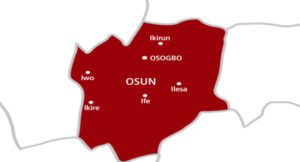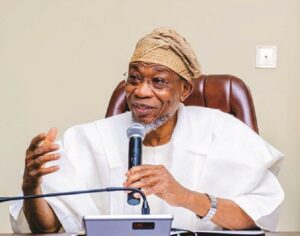


The insensitivity of government spending: A lesson from Kenya to Nigeria
By Ola’ Ajao-Akala
In the wake of recent unrest in Kenya, triggered by the controversial finance bill, there lies a poignant lesson for Nigeria—a warning about the potential consequences of perceived governmental insensitivity during times of economic hardship. As the Nigerian government contemplates the purchase of a new presidential jet for President Bola Tinubu, the tumult in Kenya serves as a stark reminder of the dangers of tone-deaf fiscal decisions.
Kenya’s current crisis began with the introduction of a finance bill that imposed new taxes and exacerbated the economic burdens on its citizens. The resultant backlash was swift and severe, with widespread protests and civil unrest. The Kenyan populace, already strained by economic challenges, viewed the bill as a blatant disregard for their struggles. This perception of insensitivity fueled public anger, leading to violent demonstrations and clashes with security forces.
Nigeria, with its own set of economic challenges, stands at a critical juncture. The country grapples with high inflation, unemployment, and a weakened naira, all of which have strained the average Nigerian’s ability to make ends meet. In such a context, the news of a potential purchase of a new presidential jet for President Tinubu could be perceived as an egregious display of government insensitivity.
The decision to acquire a new jet, a luxurious jet previously owned by a Sheikh and currently repossessed by a German bank because of the Sheikh’s inability to pay and which was estimated to cost 100 millions of dollars, is likely to be seen by many Nigerians as an extravagant expenditure that prioritises the comfort of the political elite over the pressing needs of the populace. This perception could ignite a wave of public discontent, similar to what has been witnessed in Kenya.
The optics of such a purchase are especially damaging when juxtaposed with the daily realities faced by ordinary Nigerians. Many struggle with inadequate public services, including healthcare, education, and infrastructure. The sense of inequality and injustice could be further exacerbated if the government proceeds with this high-profile expenditure.
Moreover, the timing of this decision is crucial. With the recent 2023 general elections, the Nigerian government must be acutely aware of the electorate’s sentiments. Public perception of governmental priorities plays a significant role in shaping political fortunes. A decision perceived as insensitive could erode public trust and support, with far-reaching implications for the political landscape, and with an already unpopular APC, such a decision would be more catastrophic for the political party.
The Kenyan experience underscores the importance of empathy and responsiveness in governance. When governments are seen as disconnected from the realities of their citizens, the resultant discontent can manifest in ways that destabilise societies. Nigeria, therefore, must heed this lesson.
Rather than proceeding with the purchase of a new presidential jet, the Nigerian government could explore alternative ways to demonstrate fiscal prudence and solidarity with its citizens. Investments in critical sectors such as healthcare, education, and infrastructure would not only address pressing needs but also signal a commitment to improving the lives of ordinary Nigerians. The government can also cut down on international travels, if they must, they should fly commercial airlines like Air Peace. They should also travel by roads while travelling locally, this will allow the president to experience what its citizens are enduring on a daily basis using our bad roads.
In conclusion, the unrest in Kenya serves as a cautionary tale for Nigeria. The potential purchase of a new presidential jet, if perceived as an insensitive and extravagant decision, could provoke public outrage and erode trust in the government. At this critical juncture, the Nigerian government must prioritise empathy and responsiveness, demonstrating a genuine commitment to addressing the challenges faced by its citizens. By doing so, it can foster a sense of unity and shared purpose, steering the nation towards a more stable and prosperous future.
Ola’ Ajao-Akala wrote from Osogbo, Osun State



